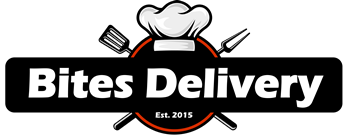Root beer is a cherished soft drink, celebrated for its unique, creamy taste across North America. While many are accustomed to finding caffeine in colas, the question remains: Does root beer also hide this stimulating compound?
Does Root Beer Soda Have Caffeine?
Most Root Beers available are Caffeine-Free
The majority of root beer brands in North America proudly offer caffeine-free recipes. Ingredients often include carbonated water, sugar, food coloring, and a blend of flavors – but seldom caffeine.
For those curious, here’s a list of some popular caffeine-free root beer brands:
- A&W Root Beer
- Diet A&W Root Beer
- Mug Root Beer
- Diet Mug Root Beer
- Dad’s Root Beer
- Diet Dad’s Root Beer
- Barq’s Diet Root Beer
Root Beer with Caffeine
Surprisingly, while most root beer brands are caffeine-free, there are exceptions. One brand that stands out in this respect is Barq’s. Its regular variant has approximately 22 mg of caffeine in a 12-ounce (355-ml) can. But, if you’re cutting caffeine, their diet version might be for you, as it contains none.
- Comparison: A typical 8-ounce (240-ml) cup of coffee packs around 96 mg of caffeine. That’s roughly four times the amount in a can of Barq’s.
- Other drinks like green or black tea often contain between 28–48 mg of caffeine per 8-ounce cup.
How to Check for Caffeine?
If you’re scrutinizing labels, keep in mind that while naturally caffeinated foods (think coffee or chocolate) might not always spell out their caffeine content, products with added caffeine, like some root beers, need to mention it in their ingredient list. But here’s the catch: the Food and Drug Administration (FDA) does not mandate the disclosure of the precise amounts of added caffeine. So, if you’re keen on specifics, consider visiting the product’s official website or connecting directly with the manufacturer.
How To Know the Percentage of Caffeine Content?
If you’re leaning towards a caffeine-free experience, go for brands that explicitly affirm their non-caffeinated status. For those who wouldn’t mind a mild root beer rush, a bit of online digging should suffice. Brands with a sense of responsibility should indicate their caffeine content on their websites.
Still in doubt? You could always sample different brands and monitor your energy levels post-consumption. However, this might not be the most efficient approach. Remember, caffeine tends to work its magic 30-60 minutes after intake. So, watch out for any sudden spurts in your energy during that frame.
Takeaway
In the mood for a root beer float or a fizzy BBQ companion? You have a plethora of options – caffeinated or not. Whether you’re pro-caffeine or against it, it’s always wise to enjoy root beer in moderation. The sugar in it can quickly stack up, leading to not-so-sweet aftereffects and health risks.
Frequently Asked Questions
1. What soda has no caffeine?
Fruit sodas mostly reign as caffeine-free champs, but a few rebels like Sunkist and Diet Sunkist buck the trend. Renowned caffeine-free stalwarts include Fanta, Fresca, Crush, and Slice. But here’s a neat trick to figure out your soda’s caffeine status:
In the US, a soda with caffeine will loudly proclaim it on its label. Even so, they might play coy about the exact amount according to some sources. A simple glance for the words “contains caffeine” near the nutritional information or ingredients list should do the trick. If you spot no mention of caffeine, you’re in the clear.
2. Which Coke or Pepsi has no caffeine?
For those craving that Pepsi zest minus the caffeine jitters, Pepsi MAX is the answer. Not only is it sugar-free, but it also ensures that your caffeine intake remains undisturbed. Whether you’re hosting a BBQ, pizza night, or a casual dinner, Pepsi MAX fits right in. Here’s a quick rundown of its perks:
- Maximum taste, no sugar
- No caffeine
- Low-calorie: A mere 2 calories per can
- Vegetarian-friendly
- Committed to the planet: 100% recyclable
3. How much caffeine is too much?
For the average adult, a daily dose of up to 400 mg of caffeine is considered harmless. Put simply, it’s like downing four cups of brewed coffee, ten cola cans, or two energy shots. But beware, as caffeine content can be sneaky, especially in energy drinks. Exceeding this can be dangerous. The U.S. FDA rings alarm bells on caffeine in its powder or liquid avatar. A mere teaspoon of powdered caffeine is comparable to a staggering 28 coffee cups, leading to grave health repercussions or even fatalities. Always remember, that excessive caffeine can bring unwanted effects, even for adults. Those sensitive to its influence or on specific medications might want to tread lightly or avoid it altogether.
If you prefer a more natural approach, discover how to make old-fashioned homemade root beer.

